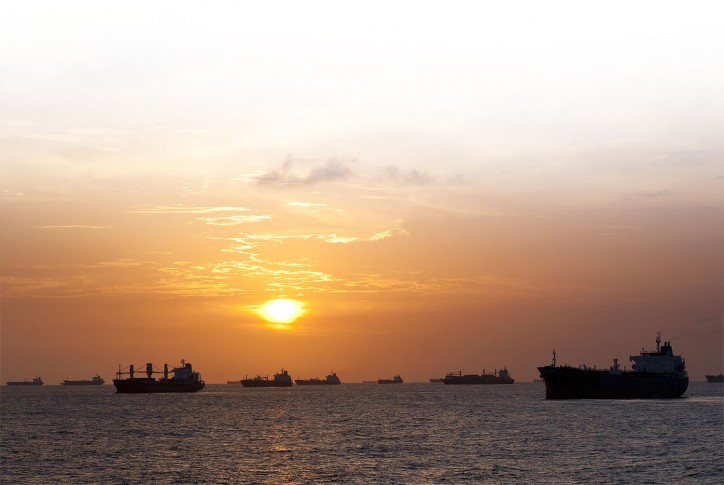The International Maritime Organization (IMO) is deliberating whether to review the procedures for Parties to the Ballast Water Management (BWM) Convention to grant exemptions for vessels operating in a limited geographical area from the requirement to manage ballast water, if it can be demonstrated that they won’t constitute a risk to spreading potentially invasive species.
The IMO’s BWM Convention is on the cusp of meeting the 35% tonnage threshold of ratifications, and will enter into force one year later. It means all vessels will eventually have to comply with the D-2 ballast water performance standard. Flag states may choose not apply the requirement to domestic ships – which indicatively is what a vast majority of Flag states will do – but any vessel operating in the waters of more than on coastal state will have to either install a ballast water management (BWM) system, use potable water, discharge to a shore facility, or not discharge any ballast water at all to comply.

Image courtesy: IBIA
Once the BWM Convention enters into force it will trigger a rush to retrofit the global fleet as most shipowners are reluctant to invest in current BWM technology. To make the transition more manageable, the BWM standards will be phased in over a period of time. The IMO has agreed that existing ships will not need to comply with the D-2 standard until their first renewal survey following the date of entry into force of the Convention. In practice, if a vessel has had its renewal survey just before the BWM Convention enters into force it could be up to five years before it is required to have its next renewal survey and. In most cases, it would then be required to install BWM equipment to be able to meet the D-2 standard.
The intention of the BWM Convention is to prevent the spread of potentially invasive species carried in ship’s ballast water tanks. While this makes sense for vessels on transoceanic/intercontinental voyages, some short sea shipping may be operating within regions where the marine ecosystems are so similar that installing BWM equipment on ships would be pointless. It is possible, under current regulations, for coastal states that are Parties to the BWM Convention to grant exemptions from BWM requirements to a ship or ships operating between specified ports or locations using a risk assessment in accordance with IMO Guidelines (G7).
IMO is now considering whether coastal states can designate areas where they can issue general exemptions to the BWM requirements; rather than the current exemption provisions where each individual ship must make its case, which is a very onerous and uncertain process.
This follows a proposal to define and apply a mechanism for two or more coastal states (Parties) to delineate a “same risk area” (SRA) through a systematic and scientifically sound process. This was first proposed to the IMO by Croatia, Denmark, Singapore, ICS and Interferry with a more concrete proposal later submitted by Denmark and Interferry.
IBIA believes this approach may also benefit bunker tanker owners with vessels operating in a limited geographical range between neighbouring coastal states, for example between Denmark and Sweden, or between Singapore and Malaysia. It could be relevant for many areas such as the Adriatic, the Aegean Sea, the Black Sea, the Gibraltar Strait and the English Channel.
A bunker tanker operating in an area defined as a same risk area (SRA) would not need a BWM system. It could also make forays outside of the SRA as long as it never makes any ballast water exchanges outside of the SRA. Alternatively, the vessel could clean its BW tanks and use fresh water for such a foray.
At present, Sweden and Denmark are looking into if same risk area could be identified and developed, and it is hoped they will be able to submit information to the IMO’s Marine Environment Protection Committee in October this year.
As it is widely expected that the BWM Convention will meet its entry into force criteria this year, the clock is ticking to define SRAs in order that short sea shipping operators would be able to benefit from exemptions. IBIA is communicating with Interferry on the subject. “We need all hands on deck,” says Johan Roos, Director, Regulatory Affairs.
Source: IBIA